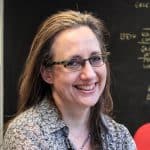Opinion: Don’t Forget About K12 Teachers
In public discussions regarding the value of free online courses, rarely do we hear the voices of K12 teachers, but teachers are an important group of learners who can benefit from MOOCs.
Teachers are MOOC Learners!
In public discussions regarding the value of free online courses, rarely do we hear the voices of K12 teachers. This is completely understandable: they are too busy teaching! Nevertheless, teachers DO enroll in MOOCs: a 2017 joint study conducted by Harvard and MIT universities, found strong levels of participation from edX enrollees with “32% of respondents self-identifying as “being” or “having been” a teacher. Of this group, 19% said they instructed on the same topic as the online course in which they participated, and 16% achieved course certification (more than twice the rate seen throughout the HarvardX/MITx learner population as a whole). MOOC-makers, take note: the info below might help you understand many of your enrollees!
Why are MOOCs well-suited for teachers? Many K12 teaching professionals operate in highly structured, ever-evolving and under-resourced programs. Succeeding in such an environment requires creative thinking and continual re-skilling. Changes in leadership, pedagogical initiatives, and the needs of students occur often and without much warning, leaving little prep time for teachers to address new challenges.
The founders of Coursera were attuned to this difficult dynamic and created a special category of courses dedicated to teacher professional development (known as TPD) in 2013. Andreina Bloom Parisi-Amon worked on some of these TPD partnerships, and explained:
Teachers epitomize a group we were aiming to serve – folks doing something really hard, without much flexibility in their schedule. The ability to learn wherever and whenever — at home after dinner or during a prep period — from experts and colleagues in the field held great promise in supporting teachers and improving outcomes for students.
Coursera was successful in getting the US Department of Education (DOE) to support MOOC certificates as demonstrations of professional development achievement and encouraged state DOEs to follow suit. Parisi-Amon recalls:
We wanted to provide an accessible option for teachers to get recognized for their professional development work and further their career without pausing their work or taking out loans.
Being able to learn new content and teaching strategies not only from the world’s best universities but also from organizations that specialize in TPD provided even more incentive for teachers to become active MOOC learners. Where else could they quickly find multiple perspectives on a variety of topics: content, pedagogy, psychology, and so much more? Coursera dissolved the TPD category a few years later, but many of the same courses are going strong today. More recently, the Canvas Network announced a shift in focus towards prioritizing teacher professional development.
Teachers need inspiration and information
Long Island, NY Social Science teacher Vincent Falivene describes especially secondary school teachers as targeted learners who look for opportunities that in his words “broaden, deepen, or address gaps in disciplinary knowledge.” Every “101” introductory level MOOC has the potential to inspire a teacher–or even a student–to look at a traditional high school topic in a new way. The HarvardX course on cell biology includes 3-D rendered, interactive and annotated illustrations allowing users to visually navigate through cell material and identify all of the essential ingredients.
What biology teacher would NOT want to explore such a rich immersive experience, as well as share directly with their students? Teachers searching for great resources like these tend to use MOOCs as slide libraries–quickly scanning through materials and drawing out the useful, media-rich bits–rather than courses meant to be taken from start to finish.
Taking MOOCs for Teacher Professional Development
Falivene remarked that American public school teachers are expected to earn professional development credit on a regular basis, making MOOCs with micro-credential programs especially appealing. This is true not only for teachers in the US but world-wide: course sequences created by Commonwealth Education Trust focus on supporting teachers all over the world who lack access to high-quality, comprehensive training or teaching resources. The Teacher Academy at the School Education Gateway, (www.schooleducationgateway.eu) centralizes teacher professional development and standardizes online TPD offerings for the European Union.
Courses that focus on improving key pedagogical skill sets like teaching with digital tools (e.g., Learning to Teach Online, University of New South Wales, Coursera), and supporting diversity, accessibility and inclusion in the classroom (e.g., Education for All, University of Cape Town, Futurelearn) are essential for teachers who need “just in time” learning experiences to address unexpected changes in student learning profiles and curriculums.
MOOCs Recruit and Prepare New Teachers
Online courses present low barriers to entry for anyone exploring the possibilities of becoming an educator. With a steady 7% job growth projection (US Bureau of Labor and Statistics) and steep turnover rates in the beginning years of service, the US K12 sector needs many new teachers in all levels and subjects every year. That is one reason why Kadenze.com, an online course platform dedicated to the arts, decided to create the Teaching Artistry Program (https://www.kadenze.com/programs/the-basics-of-teaching-artistry), a four-course sequence synthesizing the experience of three world-class institutions, well-known for their support of teachers in the arts: Lincoln Center Education (New York City), Queensland Performing Arts Center (Brisbane), and the Sydney Opera House (Sydney). Another reason, says lead instructor Brad Haseman (now Kadenze Vice President) is that the Kadenze learning platform features capabilities–such as media-friendly forums and shared gallery spaces–that authentically support learning about, and participating in, creative endeavors.
Flattening the MOOC Learning Curve for Teachers
The two main barriers preventing more teachers from becoming MOOC enrollees are lack of awareness and too little research time. Unless they get a specific recommendation for, or had a previous experience with taking online courses, it is unlikely that a teacher would stumble upon, or have the initiative to explore course catalogs on their own. So much MOOC content exists for both new and veteran teachers, but it takes time to shop for and find good course fits. MOOC makers can raise teacher awareness of their relevant offerings by connecting with respected organizations that K12 teachers already use for professional development. Including teacher relevant content in your course descriptions (e.g., “includes interactive diagrams useful for teaching biology”) would also help raise course profiles for teaching purposes as well as highlighting course reviews written by teachers. If you are planning to update your course, invite a group of teachers to advise on making it more relevant to the K12 world. Stay tuned for the next article in this series that will offer more detailed insights on optimizing online course engagement for teachers (and students!) in K12 classrooms.
Disclosure: Howes serves on the Kadenze Inc Advisory Committee.
Many thanks to:
Andreina Bloom Parisi-Amon, current Director of Partnerships at Mass STEM Hub in Boston, MA and former Head of Teaching and Learning, Coursera.com.
Vincent Falivene, IB public high school teacher in Long Island NY, currently earning his MsC in Digital Education at the University of Edinburgh
Brad Haseman, Executive Vice President, Kadenze, Inc. and Professor Emeritus at the Queensland University of Technology.
Tags








